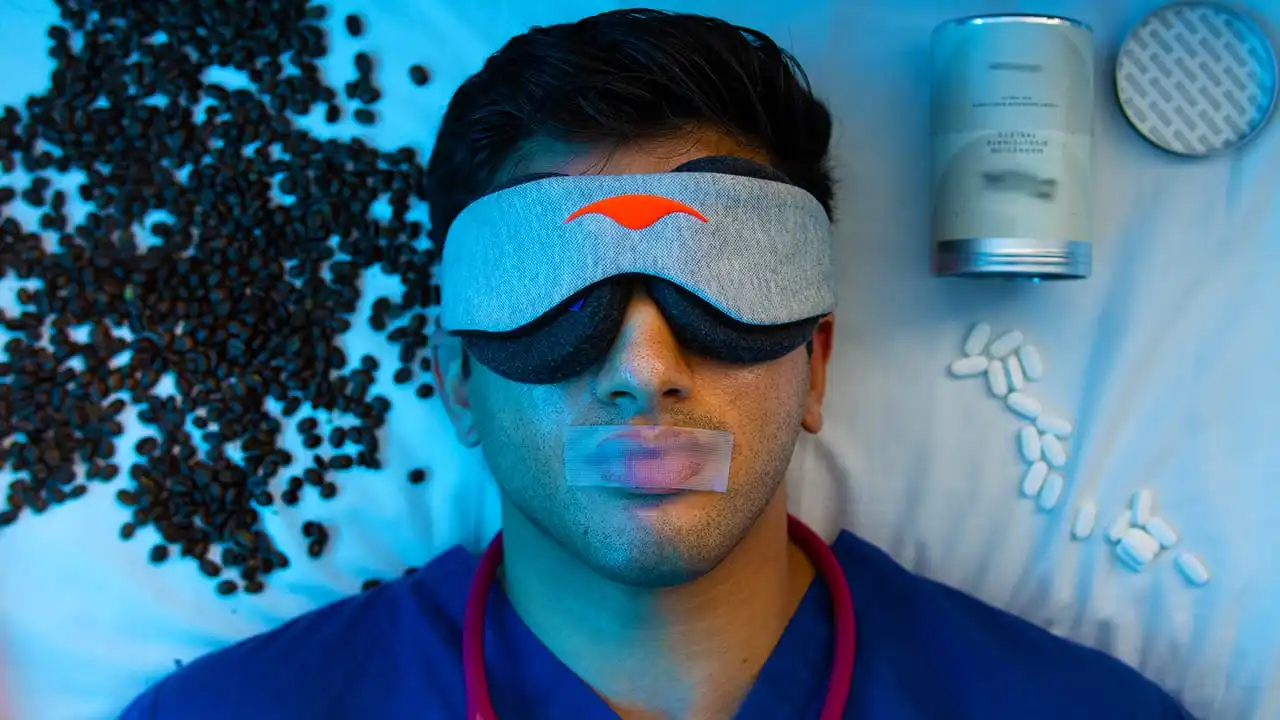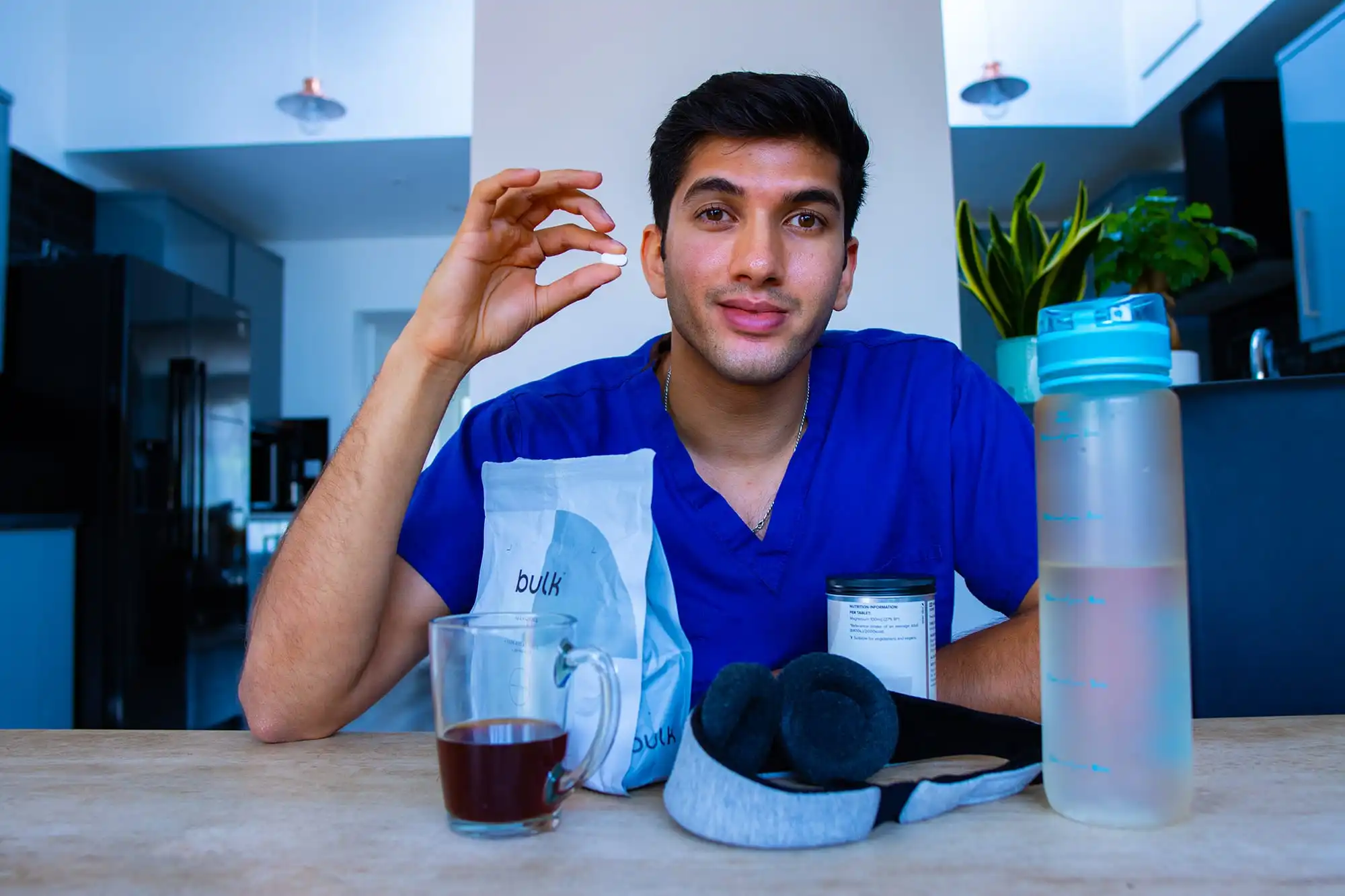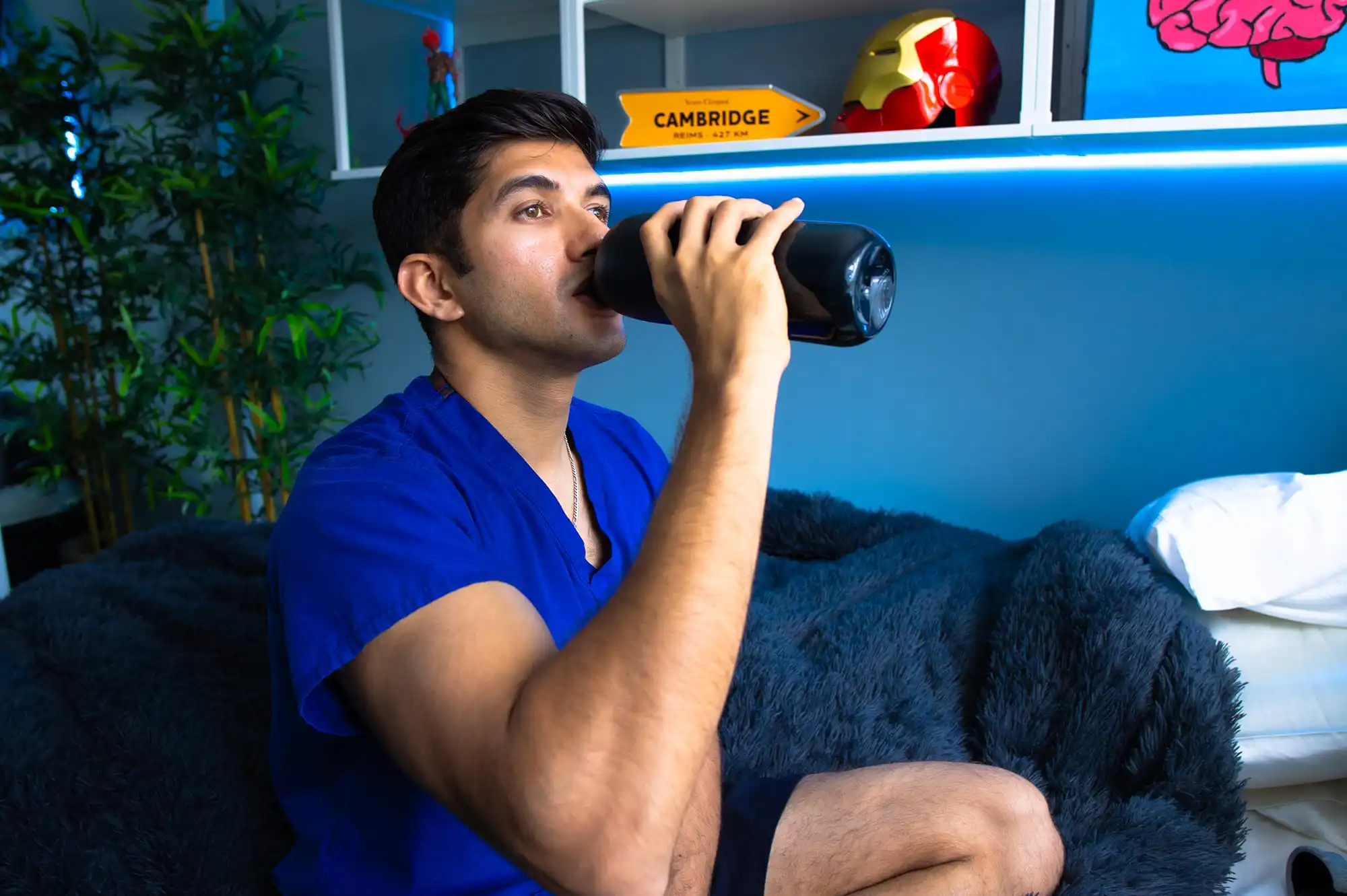Fix Your Sleep. Cambridge Doctor’s 8-Step Guide.
This is the easiest sleep guide you’ll ever read. 8 Simple Steps to better sleep, all evidence-based, by a Cambridge Doctor.

As a Doctor, I often have night shifts.
As a Cambridge student, I often had strict deadlines.
My unpredictable sleeping pattern led me down this rabbit hole. How do I optimize my sleep?
I figured out these 8-simple-steps, that anyone can do, with no effort.
I’ve been following this protocol for ~6 months. Before I started, medical colleagues would say that I always looked tired. Now they say I’m “enthusiastic” and “proactive”.
After implementing these steps, you’ll feel brighter, more confident and energetic.
Unfortunately, most people don’t want to waste their time making these small changes. But make these changes today, and every day of your life will be better.
Plus suboptimal sleep increases your risk of death :/.
I am convinced that the 8 pillars of Mental & Physical Health are:
— Andrew D. Huberman, Ph.D. (@hubermanlab) February 1, 2024
1) Sleep
2) (Sun)light
3) Exercise
4) Stress Management
5) Relationships (Incl. To Self)
6) Nutrients (Amt., Timing, Content)
7) Oral Health & Gut Microbiome
8) Spiritual Grounding
Additions? Subtractions?
Damn right, Huberman.
Common Sleep Myths and Mistakes
Almost everyone has tried to improve their sleep. But myths are common. Here are a few that I fell for.
- Stop Drinking Coffee 8 Hours Before You Sleep
- Leave the Blinds Open - Sleep and Wake with the Sun
- Exercising Before Bed Ruins My Sleep
I’m sure you have your own myths that drew you in.
Forget everything you know. We’re going to let science dictate how we sleep.
Here's how step by step:

Step 1: Black Out Your Sleep
Studies looking at >500,000 people found Light at Night (LAN) has “detrimental effects” on sleep. The negative effects include Artificial Light at Night (ALAN) - things like smartphones and light bulbs.
I used to leave my blinds open, sleeping with the sun, and rising with the sun.
This was too inconsistent. And, it ruined my quality of sleep.
Now I use a sleep mask. Way cheaper than black-out blinds. Portable. Effective.
Google “Blackout sleep mask” and don’t skimp on quality.
Step 2: Dodge the Coffee
Everyone metabolizes caffeine differently. For some, it may clear out of the body in a few hours. For others, it may take a whole day.
One study suggests stopping 13 hours before bedtime if you have 220mg of caffeine and 9 hours before bedtime if you have 110mg of caffeine
And if you don’t then caffeine makes it take longer to get to sleep, reduces total sleep time, reduces sleep efficiency and worsens how you feel about your sleep. Not fun.
Basically, stop drinking caffeine earlier in the day than you think - simple.
Even if you think you sleep fine after caffeine. You’ll still lose out on deep sleep.
I go into more detail in my ultimate caffeine guide. I have a PDF of this on the resources page of my website. Check it out.
Step 3: Take Some Sleep Supps
My night shifts forced me to explore sleep supplements. And I’m glad I did.
Science shows Glycine helps sleep in rats. And it may subjectively improve sleep quality.
Magnesium might help humans sleep, but needs more research.
Not the strongest evidence, but in my experience, these 2 supplements make me drowsy and get to sleep on time.
Magnesium bisgylcinate 500mg - tablets. Glycine 3g - powder.
And as a bonus, glycine is a key supplement in the longevity community, although the evidence is very early.
Step 4: Stop Eating, Earlier
Stop eating 3 hours before bedtime.
To hit my calorie targets, I used to eat up until bedtime.
Bad habit. Worse sleep.
I would recommend intermittent fasting. Not just for sleep, but for many health benefits.
What you eat is important too. High carbohydrate diets, and foods containing tryptophan (animals, dairy, nuts, seeds), melatonin and phytonutrients (e.g. cherries) improve sleep.
Bonus - eating earlier might reduce acid reflux.
Step 5: Minimize Fluid
Avoid fluid intake 2 hours before going to bed.
Ok, this advice is for a specific medical symptom (nocturia). But it has stopped me from waking up to urinate.
I hope I don’t have the condition :S
I’m struggling to be consistent with this recommendation. I usually stop drinking 1 hour before bed.
Baby steps.

Step 6: Keep it Quiet
Environmental noise ruins sleep.
Sorry for being captain obvious.
Many people use white noise to aid sleep. There’s no clear benefit in research, but it doesn’t seem to have any negative effects.
I suspect if you live in loud areas, white noise can help.
But if you live in tranquillity, added white noise won’t help.
Try white noise and see if helps. It’s not for me - yet.
I just try to minimize noise altogether.
Step 7: Keep it Cool
The optimal room temperature for sleep is 19-21°C. This can be age-dependent, so it’s best to aim for 20°C and find your ideal from there.
Cooler than you think.
You will probably feel cold. I know I did.
If you don’t have AC (like me), just try to keep your room as cool as possible before bed.
I couldn’t tell you how many nights I would struggle to get to sleep. I felt too hot; my feet got sweaty, and my legs started tingling. No longer.
This is one of the most powerful changes I’ve made.
Bonus tip: have a warm shower or bath before sleeping (40-42.5°C).
Step 8: Exercise, but Not Too Late
People always told me not to exercise in the evening.
I’m not a morning person. I gym after work.
Well, well, well. Evening exercise improves sleep, just like morning exercise.
But if the exercise ends <1 hour before bedtime then it will ruin your sleep.
So, definitely exercise.
But no intense activity <1 hour before bed - take this how you will.
Worth Mentioning
These are some other points worth noting.
- Taping your mouth shut - didn’t stick for me due to my skincare creams (will reveal the optimal skin routine in a future newsletter).
- Warm showers at night - research shows it aids sleep.
- Sleep tech - Whoop, 8sleep, Oura Ring, etc. Gamify sleep and make improvements.
- Optimize your mattress, pillow and duvet.
- Mindfulness has been shown to improve sleep - stay tuned for how-to guides on this.
- Fix the fundamentals - good diet, mental clarity, strong relationships, etc.
Summary
- NO light
- Avoid Coffee too late
- Magnesium + Glycine
- Stop eating 3 hours before bed
- Stop drinking 2 hours (ish) before bed
- Minimize noise (try white noise)
- Room temp 19-21°C
- End exercise >1 hour before bedtime
Do these 8 things to wake up energized, happy and ready to tackle the day.
Benjamin Franklin -"Early to bed and early to rise makes a man healthy, wealthy, and wise.”
I hope this was helpful for you, and I’ll see you next week.
Sleep well…
— Pretesh
